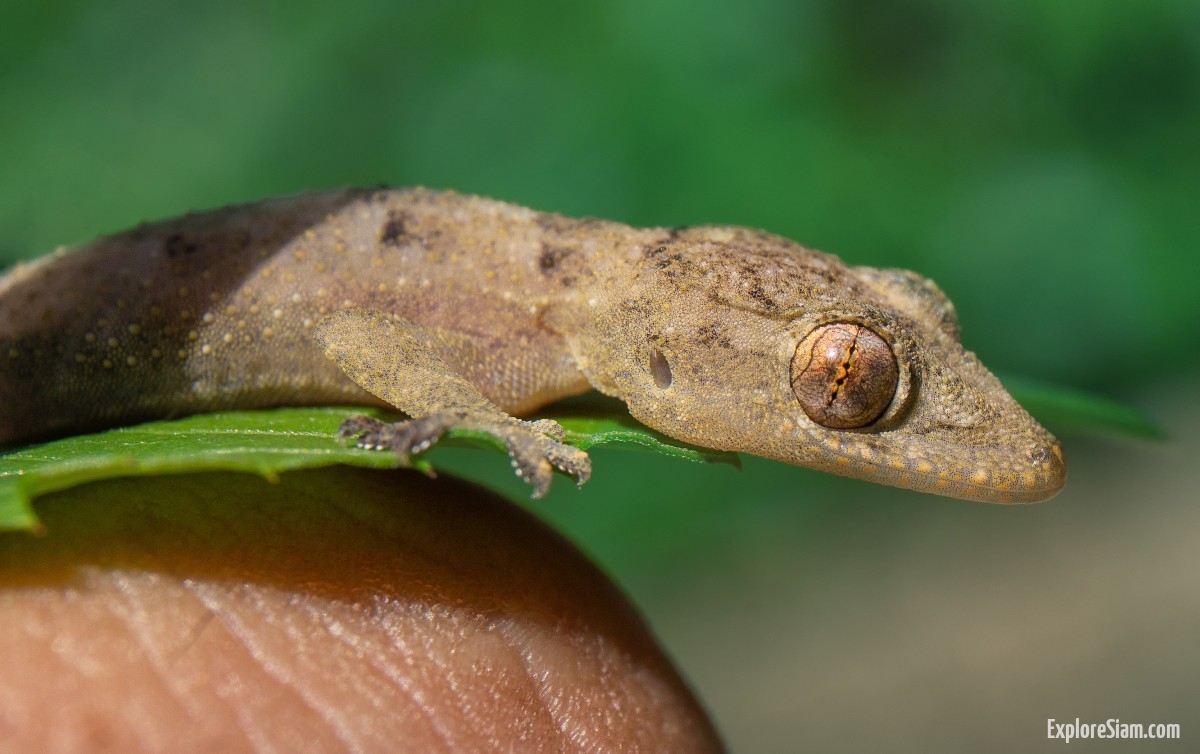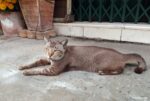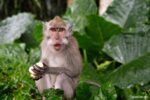In the warm, humid climate of Thailand, where nature and humanity coexist in an intricate dance, the Jing-Jok gecko emerges as an unassuming yet essential housemate. These small, nimble creatures, with their distinctive calls and remarkable agility, have woven themselves into the fabric of Thai domestic life. As twilight descends, their presence becomes more pronounced, scaling walls and navigating the intricacies of household items, all the while performing a crucial ecological role.
The Jing-Jok gecko, often referred to simply as “Jing-Jok” in Thai, is a familiar sight in homes across Thailand. Their soft, chirping calls, reminiscent of gentle clicks or chirrups, signal their activity as they embark on nightly hunts. With an unassuming demeanor, these geckos blend seamlessly into their surroundings, their muted hues of browns and grays providing a natural camouflage against the walls and ceilings they traverse.
What endears the Jing-Jok gecko to many is its unrelenting pursuit of insects. Thailand, with its tropical environment, is a haven for a variety of insect life, some of which can become pests within human habitations. The Jing-Jok, with its voracious appetite, acts as a natural pest control agent. They stealthily stalk their prey, from tiny gnats to more sizable insects, ensuring that the indoor environment remains relatively insect-free. It’s not uncommon to see a Jing-Jok darting across a kitchen counter or perched quietly near a light source, waiting to snap up an unsuspecting mosquito drawn to the glow.
Beyond their practical utility, Jing-Jok geckos are considered symbols of good fortune and harmony in Thai culture. Their presence is often associated with a household’s well-being, and their peaceful coexistence with humans exemplifies a respectful relationship with nature. Despite their frequent forays into human spaces, Jing-Jok geckos remain inherently shy and unobtrusive. They do not pose a threat, nor do they cause damage to homes. Instead, their silent companionship brings a sense of balance, reminding inhabitants of the interconnectedness of all living things.
In the gentle glow of evening lamps or the quietude of early morning, the Jing-Jok gecko’s subtle presence is a testament to nature’s quiet guardians. Their feet, equipped with tiny, adhesive pads, allow them to defy gravity, clinging effortlessly to vertical surfaces. This ability to navigate the three-dimensional terrain of human dwellings with such ease adds to their mystique. Watching a Jing-Jok scale a sheer wall or dart across a ceiling is to witness a marvel of natural engineering.
While their insectivorous diet is their most celebrated trait, Jing-Jok geckos also play a role in controlling other small invertebrates. Their ecological impact extends beyond the immediate household, contributing to the broader balance of the urban and rural ecosystems in which they thrive. Their role as both predator and prey in the food web highlights their significance in maintaining ecological equilibrium.
Despite their invaluable contributions, Jing-Jok geckos face challenges in an ever-urbanizing landscape. Habitat loss and pollution pose significant threats to their populations. However, their adaptability and resilience offer hope. As cities expand and natural habitats shrink, the Jing-Jok’s ability to thrive in close quarters with humans may become increasingly important. By fostering environments that support their presence, we not only gain a natural ally in pest control but also reinforce our commitment to living harmoniously with nature.
In conclusion, the Jing-Jok gecko is more than just a household guest; it is a symbol of nature’s subtle yet profound influence on daily life in Thailand. Their presence in our homes is a gentle reminder of the beauty and utility of coexistence. As we go about our routines, these small geckos perform their nightly duties, ensuring a balance that benefits both human and natural communities. Embracing the Jing-Jok as a helpful housemate enriches our lives and underscores the importance of preserving the delicate tapestry of life that defines our world.





